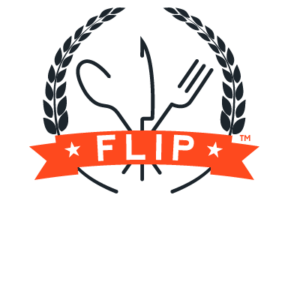Starting a food truck in Utah requires careful planning, acquiring certain permits and licenses, and protecting your business with food truck insurance. The process might take several months to a year, but it’s completely manageable when you know what requirements to meet.
Follow this guide to navigate the twists and turns of setting up your food truck business and turn your culinary dreams into a reality in the Beehive State.
Utah Food Truck Requirements
Before you can apply for food truck licenses and permits in Utah, you’ll need to complete some business set-up tasks:
- Get an employer identification number (EIN): Apply online through the IRS to get your free number. You’ll need it to file and pay taxes, open a bank account, hire employees, and more.
- Choose a business name: Your business name should be easy to remember and accurately reflect your offerings and your mission.
- Decide on a business entity: Many food trucks operate as sole proprietors or limited liability companies (LLCs). From taxes to management, each has pros and cons, so choose the framework that works best for you and your business and consult a legal or tax professional for help.
- Get your state business license: After choosing a classification, register your business online with the Utah Division of Corporations.
- Write a food truck business plan: Lay the groundwork for your food truck business, from your mission statement and marketing plans to your financial goals.
- Get your Certificate of Insurance (COI): This document is automatically issued to you when you buy a business insurance policy.
Note: Many events and venues will require you to provide proof of insurance (your COI) with your vendor application before approving your participation. It’s also a must for protecting your business against common food truck risks and expensive claims.
Food Truck Licenses and Permits in Utah
Once you’ve met the business requirements for starting a food truck in Utah, there are several licenses and permits you need to acquire to start selling.
Many Utah cities and counties have specific licensing requirements, especially when it comes to health and safety. Make sure to do your research and get all the documents you need for the city or county you’re operating in.
Business License
- Authorizes your business operations in that city or county.
- Cost: Typically between $50–$200 depending on jurisdiction
- Where to get it: City or county government
Sales Tax Permit (aka Seller’s Permit)
- Allows you to legally charge, collect, and remit sales tax on the food products you sell.
- Cost: $0
- Where to get it: Utah State Tax Commission
Mobile Food Business Permit
- Issued by your local health department after you pass a health inspection and submit a business plan, evidence of food safety manager certification, and a complete list of menu items.
- Cost: From $350–$550
- Where to get it: Your local health department
Food Handler Permit
- Certifies that employees completed a course and passed an exam on food safety best practices.
- Cost: $21.95+ per employee
- Where to get it: Utah Food Handler Training
Food Safety Manager Certification
- Meets the state requirement for all food businesses to have at least one certified Food Safety Manager on their staff.
- Cost: $65+
- Where to get it: Utah Food Safety Manager Training
Driver’s License
- License for driving your food truck.
- Cost: $52 for initial license, $9 for commercial license endorsement
- Where to get it: Utah Department of Public Safety
Food Truck Laws in Utah
Utah food trucks are subject to a number of laws and regulations put in place to ensure they operate safely. Violating these laws can result in fines, license or permit suspensions — even temporary or permanent business closure.
Some laws are state-wide, but some cities and counties also have restrictions in place to be aware of. A few notable food truck laws in Utah are:
- Commissary agreement: All food trucks in Utah have a commissary requirement. You must use a commissary kitchen approved by your local health department for food prep and storage unless otherwise exempted.
- Zoning and parking: From Logan to St. George, every city in Utah has rules that affect where and when you can park a food truck. Additionally, if you want to park your truck and sell in a residential area, you may need permission from a homeowner association (HOA).
- Alcohol restrictions: Food trucks in Utah are not allowed to sell alcoholic beverages, unlike in some other states.
- Water requirements: Food trucks must have an onboard potable water storage tank with a minimum 30-gallon capacity. The potable water source may also be outside the food truck and attached via pipes or hoses with approval from a local health officer.
- Safe food handling: All food truck employees are prohibited from touching ready-to-eat food with their bare hands. Instead, they must use single-use gloves, tongs, spatulas, or similar equipment.
Utah Food Truck Insurance
Utah food business insurance from Food Liability Insurance Program (FLIP) is ideal for both protecting and promoting your business. It’s designed to shield your business from common claims and meet insurance requirements, whether mandated by your city or a festival.
The U.S. Small Business Administration (SBA) recommends purchasing insurance to safeguard your finances in case you’re held liable for injury or property damage. Some cities in Utah require food truck operators to present proof of insurance, such as Salt Lake City, as do many events and venues.
If your truck leaks oil onto the pavement at a venue or a customer gets sick from an undercooked pulled pork sandwich you served them, you could be left financially responsible. Liability insurance can cover the expense of making things right and keep your business’ profits intact.
Costs of Starting a Food Truck in Utah
Permitting, licensing, and insurance costs are just a few expenses you need to consider when starting your food truck. Other costs to factor into your budget include:
- Food truck
- New: $50,000–$200,000
- Used: $30,000–$70,000
- Cooking equipment
- Grill/griddle: $1,000–$3,000 depending on size and brand
- Deep fryer: $500–$2,000
- Oven: $1,000–$10,000 depending on size and brand
- Refrigeration
- Refrigerator/freezer: $1,000–$3,000
- Prep table: $1,000–$2,500
- Safety and sanitation
- Commercial sink: $300–$2,000 depending on size and number of compartments
- Handwashing sink: $200–$500
- Fire suppression system: $2,000–$5,000
- Technology
- Point of Sale (POS) system: $500–$2,000 plus monthly subscription fees for software
- Inventory software: $50–$100 per month
Food Truck Festivals in Utah
Food festivals are an excellent way to attract new customers! There are many different food truck rallies in Utah, as well as other food festivals and events you can participate in once you have the correct permits and licenses.
To stay up to date with upcoming festivals and connect with people and businesses who want to book a food truck, join the Utah Food Truck League.
A few of the most popular festivals for food trucks are:
- Monday Food Truck Nights
- Salt Lake Food Truck Day
- Hungry Herriman Food Truck Roundup
- Starry Nights @the Plaza
Learn how to increase your chances of getting your food truck into festivals before you start applying!
FAQs About Food Truck Regulations in Utah
Is a Food Truck a Good Business to Start in Utah?
Yes! Many cities in Utah have food truck-friendly laws that make starting and running a mobile food business easier.
For example, one law passed in 2022 restricts a city or county’s ability to require you to obtain a business license from that jurisdiction if you already have one in a different part of Utah.
So, if you want to expand your operations from Provo to Sandy City, you won’t need to obtain a Sandy City license if the one you got in Provo is still valid.
Is a Commissary Kitchen Required for Utah Food Trucks?
Yes, food trucks in Utah are required to use a commissary kitchen by law. However, some food trucks may be exempt from this requirement with approval from a local health officer in the area where they operate.
A few reasons a health officer might exempt a food truck business include:
- It is designated by the local health department as a tier-one mobile food business (its menu includes less than 3 time- and temperature-controlled foods and does not include raw animal products)
- It does not use temperature-controlled products in food production
- It does not store prepared food products overnight
Are Ice Cream Trucks Legal in Utah?
Yes! However, ice cream trucks are not considered food trucks by Utah’s legal definition. In Utah, each city has its own rules for starting an ice cream truck.
For example, Salt Lake City’s ice cream vendor application requires you to submit your vehicle to an inspection to confirm it has certain safety features, including:
- An audible backup warning device that turns on when your vehicle is in reverse
- A sign/decal at the front and back of your vehicle that contains the words “CHILDREN CROSSING” and “ICE CREAM” with lettering at least 6 inches in height
- A convex mirror mounted at the front of your vehicle, allowing you to see the area that would normally be blocked by the hood

Alex Hastings
Seattle-based copywriter and (WA) licensed insurance agent Alex Hastings leverages her experience as a lover of fast-casual food, baked goods, and iced oat milk lattes. She holds a B.A. in Creative Writing from Western Washington University. Before working at Veracity, she was a retail copywriter at Zulily and an English language teacher in South Korea. Alex is fully trained on FLIP insurance coverages and writes content that connects food and beverage business owners with the policies they need.
Seattle-based copywriter and (WA) licensed insurance agent Alex Hastings leverages her experience as a lover of fast-casual food, baked goods, and iced oat milk lattes. She holds a B.A. in Creative Writing from Western Washington University. Before working at Veracity, she was a retail copywriter at Zulily and an English language teacher in South Korea. Alex is fully trained on FLIP insurance coverages and writes content that connects food and beverage business owners with the policies they need.

Kyle Jude
Kyle Jude is the Program Manager for Food Liability Insurance Program (FLIP). As a dedicated program manager with 10+ years of experience in the insurance industry, Kyle offers insight into different coverages for food and beverage business professionals who are looking to navigate business liability insurance.
Kyle Jude is the Program Manager for Food Liability Insurance Program (FLIP). As a dedicated program manager with 10+ years of experience in the insurance industry, Kyle offers insight into different coverages for food and beverage business professionals who are looking to navigate business liability insurance.


